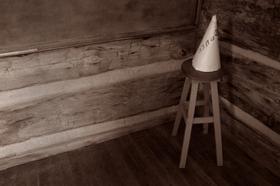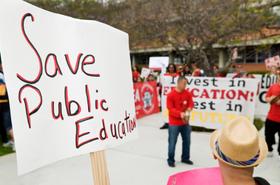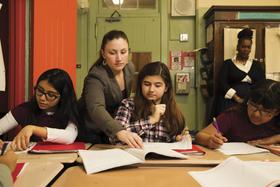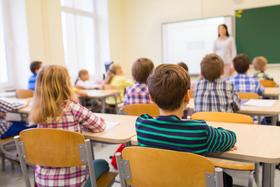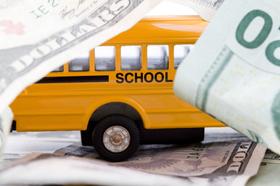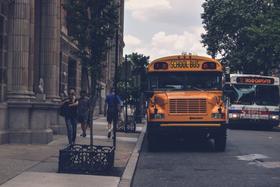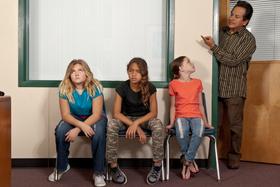As educational leaders experiment with new programs to help turn around the current public school crisis, some experts predict that there will be a rising interest in privatizing many public schools. With public schools struggling to meet standards amidst decreased recessionary budgets, many parents and community members are wondering if their local schools will soon be in the hands of privatized leaders.
From unions to vouchers, school budgets to discipline policies, we cover some of the most controversial issues affecting public schools today. Learn more about education reform and how it impacts your family. Keep current on the latest controversies regarding religion, sex-education, civil rights and more.
View the most popular articles in ĺŇ”őŐŚ”ż Policies:
Are ĺŇ”őŐŚ”żs Facing Privatization Amidst the Economic Crisis?
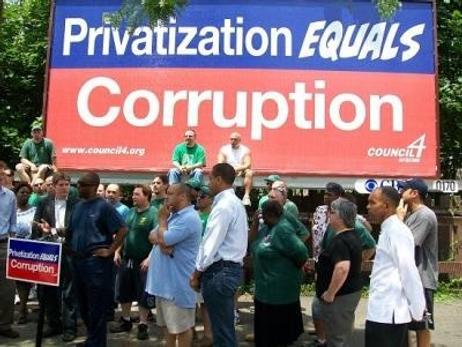
How is Your Child’s School Confronting Gangs?
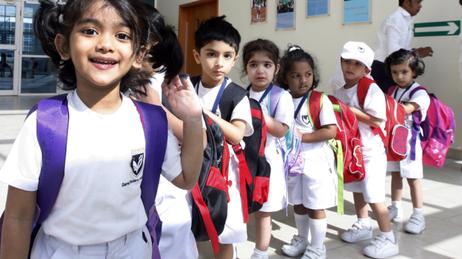
While media coverage surrounding gangs in school has subsided in recent years, the problem is still alarming. The reports that 23 percent of public schools experienced incidents of street gangs in their public school hallways. To protect students from local gangs, public schools are working to create action plans specifically targeted toward the phenomenon of street gang psychology.
Are Gangs Still a Problem in ĺŇ”őŐŚ”żs?
While not every school and community is forced to cope with gang affiliations, nearly a quarter of the country‚Äôs public schools are directly confronted by street gangs. Reviewing further details from the National Center for Education Statistics, investigators report that ‚ÄúStreet gangs are organized groups that are often involved in drugs, weapons trafficking, and violence.‚Ä� Street gangs in public schools stimulate a climate of fear amongst students and teachers. Additionally, street gangs also increase the incidents of violent actions and outbreaks on campus.
Although studies show that urban schools are more likely to report the presence of gangs, surrounding suburban areas are still targeted areas for gang activity. 31% of urban public school students report gang occurrences on campus, but 18% of suburban public schools also face these issues.
This video reports on the creation of a gang task force in Atlanta schools.
What Causes Gang Issues and Affiliations?
According to research, teens and younger children choose to join a gang for
Is Your ĺŇ”őŐŚ”ż‚Äôs Zero-Tolerance Policy Punishing Innocent Students?

In light of terrifying outbreaks of school violence, nearly all public schools have embraced a ‚Äúzero-tolerance policy‚Ä� to deter students from malicious behavior. As the American Bar Association (ABA) describes, ‚Äė‚ÄúZero tolerance‚Ä� is the phrase that describes America's response to student misbehavior. Zero tolerance means that a school will automatically and severely punish a student for a variety of infractions.‚Ä� Common student infractions include carrying a weapon to school, engaging in threatening forms of physical or verbal behavior, and bullying other students.
However, does the zero-tolerance policy work in public schools? The ABA argues that the zero-tolerance approach has devastatingly turned into a ‚Äúone size fits all solution‚Ä� for problems that need more personal interpretation and subjective assessment. For example, misunderstandings and common minor infractions are penalized under the large umbrella of zero tolerance ‚Ä� leading to overreactions and potentially unjust punishments.
Subsequently, many parents and community members are questioning if other types of behavior policies would be more appropriate in keeping public school campuses safe.
This TEDx Talk discusses the impact of zero-tolerance on teenagers.
What are Zero Tolerance Policies?
Zero-tolerance policies are rules that specifically target the most serious risks facing the safety of students in public schools. For example, students who bring any weapon to school can be punished under zero-tolerance restrictions.
While these types of policies were intended to help create a more widespread environment of safety and
Should Schools Conduct Background Checks on Teachers?
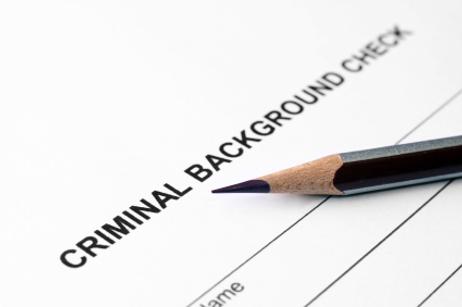
Once considered society’s role models, today’s teachers have been caught in a media frenzy of scandalous and questionable behavior. Parents and community members are voicing their justified concerns regarding how public schools evaluate their employees.
While the national statistics regarding teachers and their potential criminal connections are still vague, many cities and school districts have begun implementing their investigations of public school workers. For example, as reports, recent 2007 investigations uncovered a list of criminal convictions in various teachers‚Ä� files, including charges of stalking, theft, and assault, among other crimes. Subsequently, more leaders are debating how to evaluate each public school employee‚Äôs credentials, integrity, and background more effectively.
Are Schools Engaging in Effective Background Checks?
While all public schools are required to conduct background checks on newly hired teachers, most do not continue to randomly check a teacher’s criminal file once they are added to the school’s payroll system. As a result, some teachers may enter their careers without any record, yet they may commit unnoticed crimes while working for the school.
Adding to this concern, as further reveals, many teacher candidates can pass a basic background check ‚Ä� even if their record posts convictions of crimes such as assault, theft, and fraud! Among the 135 teachers with criminal records in Pittsburgh ĺŇ”őŐŚ”żs, investigators discovered that some of the more severe charges were incidents ranging from possession of heroin and crack to embezzlement charges totaling $7,000. One local
Can Your Child’s School Test Students for Drugs?

Faced with the rising concern regarding teen drug and substance abuse, the Supreme Court granted public schools the legal permission to administer random drug tests for student-athletes in 2002. Since this decision, public schools have contemplated expanding the drug testing scope into their entire student population.
According to , in the 2005 to 2006 academic year alone, 373 public schools received federal funds for drug testing, which was quite a surge in response compared to the mere 79 public schools just two years prior.
With the rising implementation of drug tests for student-athletes, advocates for drug testing assert that schools should now expand their screening. As the legal barriers that oppose public school drug tests have been overturned, more schools are contemplating the opportunity to expand their drug testing parameters. This shift in policy has some parents, students, and academic leaders concerned about student rights. Can public schools randomly screen their students for drugs without invading a student’s privacy rights?
Drug Testing in ĺŇ”őŐŚ”żs
While the number of schools randomly testing student-athletes for drug use is rising, the total number of participating public schools only amounts to a rather tiny percentage, with just 28,000 public schools screening students for drugs. Many public schools, as USA Today further reveals, have been reluctant to pursue drug testing policies and actions out of a fear of violating state-mandated rights and laws.
In contrast, advocates for drug testing assert that students can be tested without being unreasonably
Recent Articles









